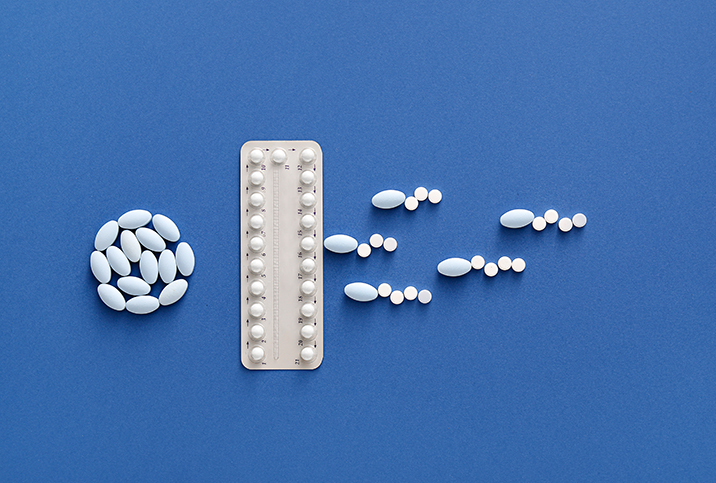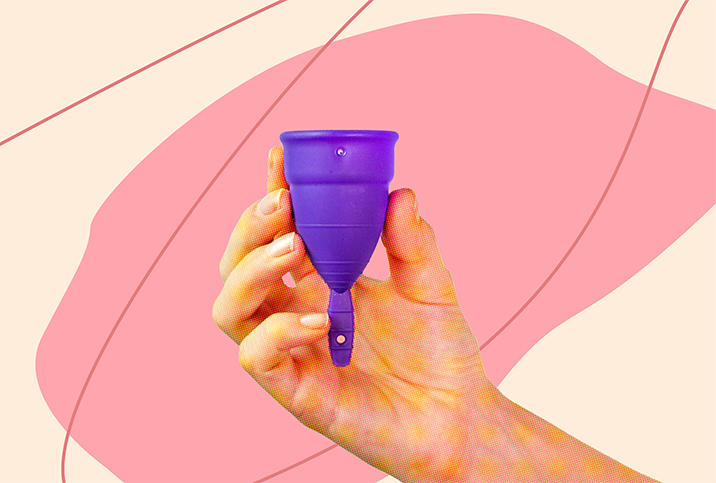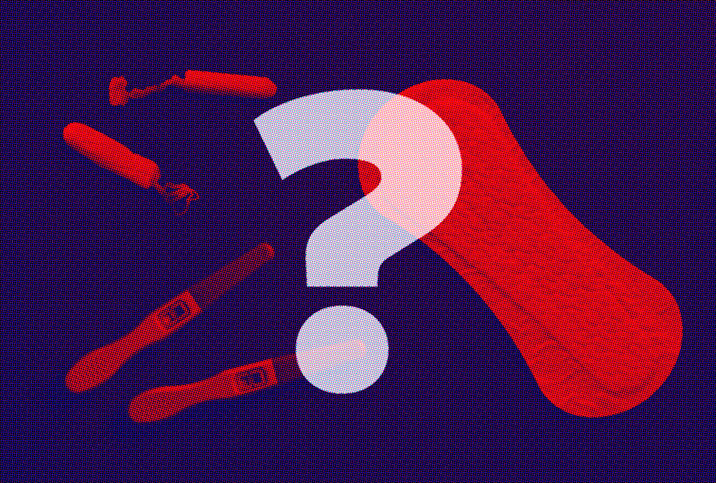Here's How Soon You Can Get Pregnant After Stopping Birth Control

For all the side effects birth control can cause—don't even mention the moodiness—using contraception is still crucial if you want to have sex but not a baby or just need a more regular period. But if you're ready to bring someone into the world, how long will you have to wait, if at all, after stopping birth control?
The short answer: Not too long, but it depends on what form of birth control you've utilized.
If you were on the pill…
The answer is a bit more complicated if you were using the pill.
"For options that contain estrogen, such as combined hormone pills, rings or patches, some people will ovulate or release an egg within the first month after stopping," said Cristin Hackel, a nurse practitioner and certified registered nurse at Nurx in Bethesda, Maryland. "This means they could get pregnant before having their first period off of birth control."
However, period regularity may take some time.
"When quitting the pill, it can take a few months for your cycle to return back to how it was prior to taking oral contraceptives," said Cindy Luquin, M.A., a certified sex educator and writer in Washington, D.C. She believes there's not an exact time period in which your body will react.
Statistically, about 50 percent of people get pregnant within the first three months post-pill, and 83.1 percent within the first 12 months.
If you have baby fever and have been on the other type of pill, we have some good news: Stopping the traditional progestin-only pill, or "mini-pill," can result in a much faster pregnancy.
"[Your] ability to get pregnant starts immediately after not taking them," Hackel said.
The time frame varies with arm implants.
"Some people can get pregnant between a month after removal up to a year," Luquin said.
Reddit posts show just how big the difference can be. Some people got pregnant anywhere from around a day to four months after implant removal, based on a small sample of self-reports.
IUDs are another story, however
Taking out an intrauterine device (IUD) equals much faster pregnancy rates.
"Normal things to feel upon IUD removal: slight cramps, light bleeding and fertility returning to normal. So it is possible to get pregnant right away," Luquin said.
"No hormones are in the copper IUD, so once removed, there are no lingering hormones that would prevent or delay pregnancy," Hackel explained.
You should see similar results with the hormonal IUD, too.
"The IUD [both hormonal and nonhormonal] is more immediately reversible and should not affect the resumption of normal menstrual cycles," said Taraneh Nazem, M.D., a reproductive endocrinologist, infertility specialist and board-certified OB-GYN in New York City.
Luquin encouraged scheduling an appointment with your healthcare provider to get your IUD removed (though some people take it out themselves), especially if the expiration date is approaching soon.
What about the vaginal ring and Depo shot?
You're looking at a short amount of time with the vaginal ring: up to two weeks. Your cycle will eventually look like it did pre-ring.
"Keep in mind that everyone is different, so if you had unpredictable periods, then you can expect that upon quitting the ring," Luquin added.
With the Depo shot, it's more likely you'll find yourself waiting a bit—longer than you would with the other forms of birth control—after stopping injections.
"It can take some time for the injected hormones to be completely gone from the body," Hackel explained. "The expectation is that it can take up to one year [occasionally, up to 18 months] from stopping Depo before cycles and ovulation resume regularly."
Other factors that do (and don't) play a role
Besides the type of birth control you've been taking, what else can affect how quickly (or slowly) you can get pregnant? The answer is nuanced.
According to Hackel, it doesn't matter how long you've been using birth control: Two months or 20 years, your fertility is the same. However, that doesn't mean time and, therefore, age aren't factors.
"If a 40-year-old stops taking the pill, they may take longer to get pregnant than someone who is 20 years old, because fertility declines with age, regardless if birth control was ever used or not," she said.
Just as starting birth control can cause several side effects, quitting it can, too. Luquin urged individuals to monitor dizziness, heart palpitations, headaches, nausea, excessive bleeding, pain and your period not (eventually) returning. If you have problems, contacting your doctor is a good idea.
The bottom line
While it may take a few months for your period to become regular again, conception can happen much faster (or slower) depending on the type of birth control you were using. People who used an IUD, for example, will probably get pregnant faster than people who used the Depo shot.
"My advice to anyone who is getting ready to conceive and planning to stop their birth control is: Be prepared that it might work the first time or that it might take several months," Nazem said.
She suggested knowing your typical menstrual cycle length so you know when to hit the sheets with your partner. In other words, do it when you're ovulating.
Is anyone else going for an Aquarius or Pisces kid? Planning ahead might be a good idea. Nazem said planning gives you time to notice any changes—such as heavier, more painful or more irregular periods—talk about concerns with your provider and attempt to have a baby close to the time you want one.


















